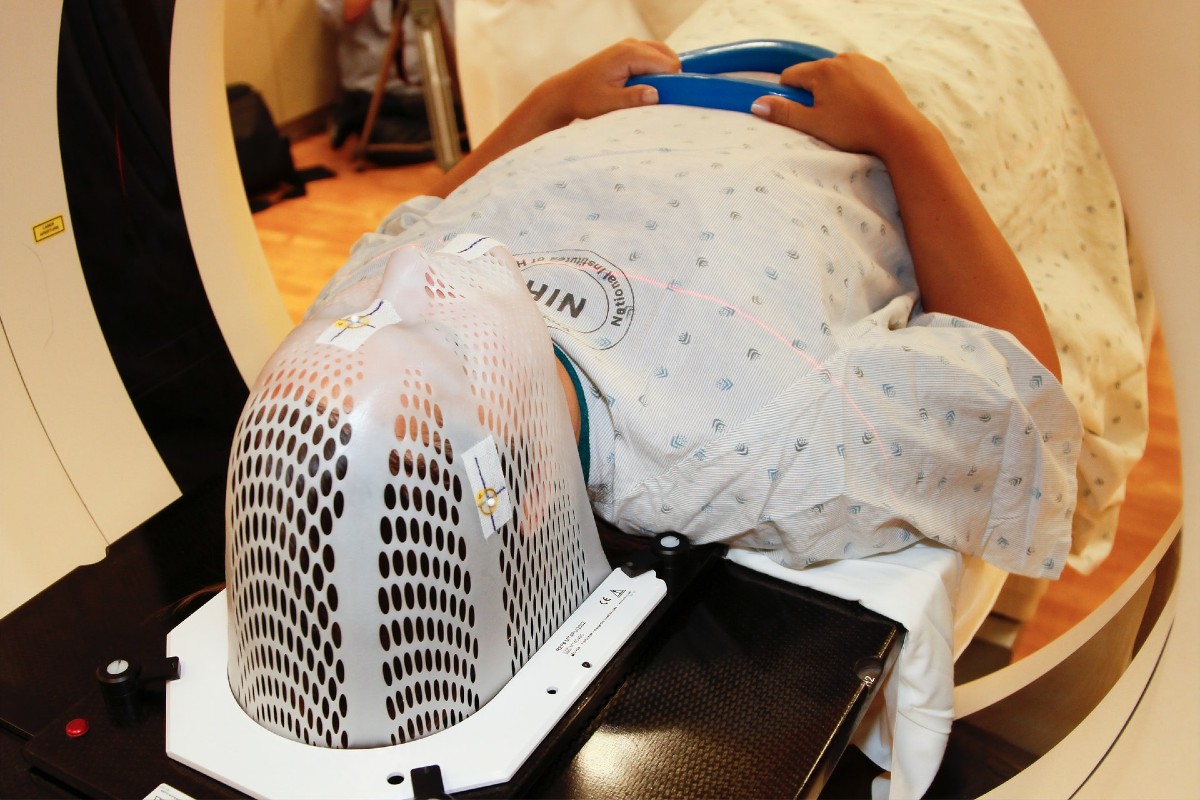STATEHOUSE REPORT | ISSUE 21.02 | JAN. 14, 2022
BIG STORY: Senate to continue debate on law that limits hospital expansion
NEWS BRIEFS: Legislature gets down to work on budgeting
LOWCOUNTRY, Ariail: Be prepared
COMMENTARY, Brack: Want to make a difference? Get involved
SPOTLIGHT: The S.C. Education Association
FEEDBACK: Yes, let’s get to work
MYSTERY PHOTO: Empty bridge
DONATE: We’re proud to offer Statehouse Report for free. For 20 years, we’ve been the go-to place for insightful independent policy and political news and views in the Palmetto State. And we love it as much as you do. But now, we can use your help. If you’ve been thinking of contributing to Statehouse Report over the years, now would be a great time to contribute as we deal with challenges thanks to the pandemic. In advance, thank you.
Senate still debating law that limits hospital expansion

By Andy Brack | State senators will continue discussing a proposal next week on whether to get rid of a law that requires hospitals and medical clinics to receive state permission to expand.
![]() Supporters of a bill for which debate started Wednesday say the state’s “certificate of need” program for new medical facilities and hospital expansions is no longer needed. Two generations ago, the law was passed to help control costs and avoid duplication. But in the years since, it’s become unwieldy and has kept needed improvements from happening, they say.
Supporters of a bill for which debate started Wednesday say the state’s “certificate of need” program for new medical facilities and hospital expansions is no longer needed. Two generations ago, the law was passed to help control costs and avoid duplication. But in the years since, it’s become unwieldy and has kept needed improvements from happening, they say.
Sen. Wes Climer, the York Republican who is sponsoring the bill, said the certificate of need program curbed competition. For example, he pointed to an independent oncology practice in his region that wants to purchase an MRI scanner to open a radiation treatment center, but has been thwarted.
“They were told by an area hospital CEO, ‘Don’t even try. We have the financial resources to nuke you,’” Climer said, according to The Post and Courier.

The South Carolina Hospital Association says it doesn’t support Climer’s S. 290 bill, but backs Senate Bill 370 by Sen. Scott Talley, R-Spartanburg. It is a reform measure to update the program, according to spokesman Schipp Ames.
“We hope the Senate will take swift action to reform, but not repeal the Certificate of Need program,” Ames said in a statement. “This is essential to protecting access to care for low-income families and rural communities.
“Certificate of Need also ensures a level playing field, by keeping out-of-state providers from only offering the most profitable services without having to do their part to support South Carolina’s uninsured or underinsured patients.”
Critics of Climer’s repeal proposal say it can lead to economic conflicts and corruption.
“Do your homework,” said Fred Palm, a former executive director of the Association of Inspectors General who now lives at Edisto Beach. “This model has a long history of abuse and failure. There are different fraud schemes attached to this model. Failed health services are the most significant consequence. Corrupt investors, including physicians milking insurance payments to gin up their own income, is a primary vector of corruption and ill-service.”
Among the reforms called for by the Hospital Association are eliminating certificate of need requirements for adding beds to some existing hospitals, cutting requirements for replacement of equipment, getting rid of the need for a certificate for home health agencies and eliminating certificate requirements for eight counties that don’t have hospitals.
Debate on Climer’s bill is expected to continue Tuesday.
- Have a comment? Send to: feedback@statehousereport.com.
Legislature gets down to work on budgeting

Staff reports | State lawmakers got to work in their first week of the session on budgeting billions of extra tax and aid dollars.
Unlike most years in which legislators focus only on divvying up state revenues, this year they have two extra budgets to develop to spend $525 million from a settlement involving the Savannah River Site as well as $2.5 billion in federal pandemic aid. There’s also a surplus of more than $2 billion for the 2022-23 budget from extra past revenues and predicted growth.
On Tuesday, a Senate Finance subcommittee discussed how to use aid funds and is expected to continue work next week. The House Ways and Means Committee may take up the two extra budgets next week, too, on an ad hoc basis.
Meanwhile Monday, Gov. Henry McMaster unveiled his proposal of how he thinks South Carolina should spend billions of dollars in extra dollars in the 2022-23 budgeting cycle. The proposal included a mix of familiar calls for tax cuts, but also new proposals like bonuses for school bus drivers, cash to expand election audits and money to replace the state’s aging health lab. More: AP News.
In other recent news:
![]() SC COVID cases up more than 750% in last two weeks. South Carolina has seen a meteoric rise in COVID-19 cases over the last 14 days, with average daily infections up 759% as the omicron variant continues to lead a record-breaking surge across the United States. Meanwhile on Thursday, South Carolina health officials reported 14,764 total cases of COVID-19, with 10,412 confirmed. A total of 32 new deaths, 14 confirmed, were also reported. With 66,680 tests reported Thursday, 26.9 percent were confirmed positive. Percentage of S.C. residents age 5-11 with at least one vaccine: 15.1 percent. Percentage of S.C. residents age 12+ with at least one vaccine: 65.9 percent. More: Charleston City Paper, The New York Times.
SC COVID cases up more than 750% in last two weeks. South Carolina has seen a meteoric rise in COVID-19 cases over the last 14 days, with average daily infections up 759% as the omicron variant continues to lead a record-breaking surge across the United States. Meanwhile on Thursday, South Carolina health officials reported 14,764 total cases of COVID-19, with 10,412 confirmed. A total of 32 new deaths, 14 confirmed, were also reported. With 66,680 tests reported Thursday, 26.9 percent were confirmed positive. Percentage of S.C. residents age 5-11 with at least one vaccine: 15.1 percent. Percentage of S.C. residents age 12+ with at least one vaccine: 65.9 percent. More: Charleston City Paper, The New York Times.
Former USC provost leading candidate to become school’s next president. Former University of South Carolina Provost Michael Amiridis is expected to become the school’s next president, according to media reports. More: The Daily Gamecock.
Latest school voucher push debated on state Senate panel. A Senate panel has begun debate on a new proposal looking to send South Carolina parents $7,000 yearly for private K-12 education. More: WCSC.
Longtime S.C. teachers’ advocate launches bid for state superintendent. Republican Kathy Maness, executive director of the Palmetto State Teachers Association and longtime advocate for S.C. teachers, is running to replace retiring state Superintendent Molly Spearman. More: The State.
Republicans liked anti-LGBTQ bill until they saw impact on unvaccinated. A bill aiming to protect doctors and other medical professionals from being fired, demoted or sued if they refuse to provide non-emergency services to which they morally object — and also allow for conversion therapy in the state — is now stalled over concerns it could backfire on COVID-mandate opponents who are not vaccinated.
S.C. House advances Republican-favoring congressional map. South Carolina’s First Congressional District is looking a little safer for Republican incumbent Rep. Nancy Mace after the House approved a version that would move the district from leaning Republican back into a Republican stronghold. More: Associated Press.
State saw 15% increase in human trafficking victims in 2021. S.C. Attorney General Alan Wilson said more children were identified as victims of human trafficking in South Carolina in 2021 than ever before. There was a 15% increase in the number of victims reported to the National Human Trafficking Hotline, Wilson said in a Monday news conference. Human trafficking in modern-day slavery, where the victim is forced to perform sex work or other work.
Governor nominates Columbia attorney to chair DHEC board. Gov. Henry McMaster nominated Friday Columbia-area attorney Robert Bolchoz to chair the state’s health board, succeeding outgoing chair Mark Elam. Bolchoz has practiced environmental law and has also supervised the Department of Health and Environmental Control’s legal counsel on some issues. His nomination must be confirmed by the state Senate. More: AP News.
Wintry weather ahead. Sunday likely will be a bleary day across the South as a winter storm dumps snow and ice across the region. In the Midlands, heavy ice is expected Sunday, while there’s already a winter storm watch in the Greenville area. South Carolina’s coast faces rain throughout the day.
Charleston racial conciliation commission passes 2nd reading, final vote delayed. Charleston City Council on Tuesday night voted 8-4 to advance a measure to create a standing Human Affairs and Racial Conciliation Commission after hearing hours of comments from residents and among council members.
- Want more headlines every business day that are like this? Visit our friends at SC Clips.
Be prepared

Cartoonist Robert Ariail always has an interesting take on what’s going on in South Carolina. Love the cartoon? Hate it? What do you think: feedback@statehousereport.com.
Want to make a difference? Get involved

By Andy Brack, editor and publisher | For a teenager in the 1970s, the Boy Scout Handbook offered an escape into a practical world that provided answers to lots of things for a young, curious mind: how to tie knots, start campfires, safely hike and camp in the woods, use a compass, identify trees and track animals. Manuals for merit badges provided more detailed information on everything from survival to citizenship. (In my view, the Boy Scouts’ three merit badge manuals on citizenship – for the community, nation and world – are better than the civics materials provided in school.)
 So it came as a surprise that a new book on all things maritime, appropriately called The Ocean, is based on a version of the Handbook, now called a Fieldbook, of nautical skills, as explained by co-author Chris Dixon of James Island.
So it came as a surprise that a new book on all things maritime, appropriately called The Ocean, is based on a version of the Handbook, now called a Fieldbook, of nautical skills, as explained by co-author Chris Dixon of James Island.
A few years back, Dixon said he was talking with an old friend for whom he once worked, surfing buddy and laid-back singer/entrepreneur Jimmy Buffett. Over a plate of shrimp and grits, Dixon shared the concept of a new book of maritime skills – a kind of “Poseidon’s bible – a guide to all things ocean that’ll be fun to read in a hammock strung between two palm trees, but will also help save your ass in a pinch,” as he wrote in the introduction.
 Buffett chuckled and said, “The stuff you only really learn from time on the water. … When I was a kid, I learned so much from this book called The Sea Scout Handbook,” which the authors then described as an inspiration for their new book.
Buffett chuckled and said, “The stuff you only really learn from time on the water. … When I was a kid, I learned so much from this book called The Sea Scout Handbook,” which the authors then described as an inspiration for their new book.
They ended up sharing scores of practical skills for the water. Get a flavor through some of the subtitles in six chapters of the 350-page book:
- How to Right a Small Sailboat
- The Ultimate Surf Van
- Why Ocean Exploration Matters
- Why Sharks Matter
- Open Stuff Without an Opener
- Survival Hydration
- Dive Dangers
- Ten Essential Fishing Knots.
Their book, in fact, inspired a cover feature story in the Charleston City Paper that showcases 29 different things regular people can do to help protect the ocean.
 In addition to recommendations to get out on the water to learn it and love it, there are suggestions on how you can promote sustainability of the seas, protect local waterways and be good land stewards to help the ocean. Several ideas focus on how to get greener in your life intentionally to make a longer term difference with such actions as eliminating single-use plastics, not using hygiene products with plastic microbeads, properly disposing machine fluids, reducing harmful herbicides and pesticides that might run off into streams, and being careful with sunscreens that you use.
In addition to recommendations to get out on the water to learn it and love it, there are suggestions on how you can promote sustainability of the seas, protect local waterways and be good land stewards to help the ocean. Several ideas focus on how to get greener in your life intentionally to make a longer term difference with such actions as eliminating single-use plastics, not using hygiene products with plastic microbeads, properly disposing machine fluids, reducing harmful herbicides and pesticides that might run off into streams, and being careful with sunscreens that you use.
But the story also included practical ways to participate in democracy to make it stronger.
“Never underestimate your power to make a difference, through volunteerism, recycling, political advocacy, sharing via social media or engagement in citizen science projects,” S.C. Aquarium Executive Director Kevin Mills said.
Emily Cedzo of the Coastal Conservation League added, “Take action to protect the ocean. Whether it’s opposing offshore drilling or supporting protections for the endangered right whale, there’s a lot of information out there, so get some help gathering it. You can send emails or make calls to local, state and national officials or speak at public meetings.”
Bottom line: To make a difference in any endeavor in which you’re passionate – from protecting oceans to fighting to ensure fair election lines – get more involved. Connect with groups that share your passion. Vote. Help people register to vote. Interact with people in your neighborhood and get them to help. Donate to organizations that do what you want done. Support elected officials who you support by giving your time or money during campaign season.
As the Boy Scouts taught me, being a good citizen is about being involved. We need more of that spirit today to keep America moving forward.
Andy Brack, editor and publisher of Statehouse Report, also is publisher of the Charleston City Paper. Have a comment? Send to: feedback@statehousereport.com.
The S.C. Education Association
 The public spiritedness of our underwriters allows us to bring Statehouse Report to you at no cost. This week’s spotlighted underwriter is The South Carolina Education Association (The SCEA), the professional association for educators in South Carolina. Educators from pre-K to 12th grade comprise The SCEA. The SCEA is the leading advocate for educational change in South Carolina. Educators in South Carolina look to The SCEA for assistance in every aspect of their professional life. From career planning as a student to retirement assessment as a career teacher, The SCEA offers assistance, guidance, and inspiration for educators.
The public spiritedness of our underwriters allows us to bring Statehouse Report to you at no cost. This week’s spotlighted underwriter is The South Carolina Education Association (The SCEA), the professional association for educators in South Carolina. Educators from pre-K to 12th grade comprise The SCEA. The SCEA is the leading advocate for educational change in South Carolina. Educators in South Carolina look to The SCEA for assistance in every aspect of their professional life. From career planning as a student to retirement assessment as a career teacher, The SCEA offers assistance, guidance, and inspiration for educators.
- Learn more: TheSCEA.org
Yes, let’s get to work
To the editor:
![]() I want to thank you heartily for your column in Sunday’s Florence Morning News, “Let’s get to work, America.” Your message is clear and important. What do you think should be the next step?
I want to thank you heartily for your column in Sunday’s Florence Morning News, “Let’s get to work, America.” Your message is clear and important. What do you think should be the next step?
I have been doing several of the tasks that you suggest, but I don’t have the feeling that I am part of a nationwide movement. It seems pretty clear that neither major party is interested, or capable, of leading a nationwide movement.
– Ben Williamson, Darlington, S.C.
Editor’s Note: Mr. Williamson, Thank you for your comments. Suggest you check out the Lincoln Project or search the Internet for “pro-democracy organizations” to see if anything interests you. Unfortunately, there’s not as much out there as there should be.
Send us your thoughts
We receive a few comments a week and look forward to publishing. But often we can’t because we can’t verify the identity of the writer. To be published, you’ve got to provide us with contact information so we can verify your letters. Verified letters to the editor are published weekly. We reserve the right to edit for length and clarity. Comments are limited to 250 words or less. Please include your name and contact information.
- Send your letters or comments to: feedback@statehousereport.com
Empty bridge

Here’s a pretty forlorn South Carolina scene that may be a little tough to identify. Hint: It’s in the Charleston area. Send your guess to feedback@statehousereport.com — and remember to include your name, home city and contact information.
 Last week’s mystery, “A look into the past,” shows the “Swamp Angel” near Morris Island during the Civil War.
Last week’s mystery, “A look into the past,” shows the “Swamp Angel” near Morris Island during the Civil War.
Allan Peel of San Antonio, Texas, shared that the photo, now in the National Archives, “depicts the earth and sandbag fortification from where the rifled artillery piece named ‘The Swamp Angel”’ was operated. Built upon marshy ground, the Swamp Angel was able to fire upon the city of Charleston almost five miles away using the enormous 200-pounder Parrott Rifle, the largest artillery piece used during the war. It had successfully fired 36 rounds on Charleston before exploding on Aug. 22, 1863. The precise date of when the photo was taken is unknown, but it would have been sometime after the Parrott Rifle exploded.”
Elizabeth Jones of Columbia added, “Finished by mid August 1863, this floating battery was considered to be one of the greatest engineering accomplishments of the Civil War. It was designed by Col. Edward Wellman Jerrell of the 1st New York Engineers Regiment.”
Others who correctly identified the picture or its general location were: Jacie Godfrey of Florence; George Graf of Palmyra, Va.; Steve Willis of Lancaster; Penny Forrester of Tallahassee, Fla.; Wayne Beam of Clemson; and Pat Keadle of Wagener.
- Send us a mystery. If you have a photo that you believe will stump readers, send it along (but make sure to tell us what it is because it may stump us too!) Send to: feedback@statehousereport.com and mark it as a photo submission. Thanks.
 ORDER NOW: Copies are in Lowcountry-area bookstores now, but if you can’t swing by, you can order a copy online today.
ORDER NOW: Copies are in Lowcountry-area bookstores now, but if you can’t swing by, you can order a copy online today.
ABOUT STATEHOUSE REPORT
Statehouse Report, founded in 2001 as a weekly legislative forecast that informs readers about what is going to happen in South Carolina politics and policy, is provided to you at no charge every Friday.
- Editor and publisher: Andy Brack, 843.670.3996
Donate today
We’re proud to offer Statehouse Report for free. For more than a dozen years, we’ve been the go-to place for insightful independent policy and political news and views in the Palmetto State. And we love it as much as you do.
But now, we can use your help. If you’ve been thinking of contributing to Statehouse Report over the years, now would be a great time to contribute as we deal with the crisis. In advance, thank you.
Buy the book
Now you can get a copy of editor and publisher Andy Brack’s We Can Do Better, South Carolina! ($14.99) as a paperback or as a Kindle book ($7.99). . The book of essays offers incisive commentaries by editor and publisher Andy Brack on the American South, the common good, vexing problems for the Palmetto State and interesting South Carolina leaders.
More
- Mailing address: Send inquiries by mail to: P.O. Box 21942, Charleston, SC 29413
- Subscriptions are free: Click to subscribe.
- We hope you’ll keep receiving the great news and information from Statehouse Report, but if you need to unsubscribe, go to the bottom of the weekly email issue and follow the instructions.
- Read our sister publication: Charleston City Paper (every Wednesday in print; Every day online)
- © 2021, Statehouse Report, a publication of City Paper Publishing, LLC. All rights reserved.















 We Can Do Better, South Carolina!
We Can Do Better, South Carolina!